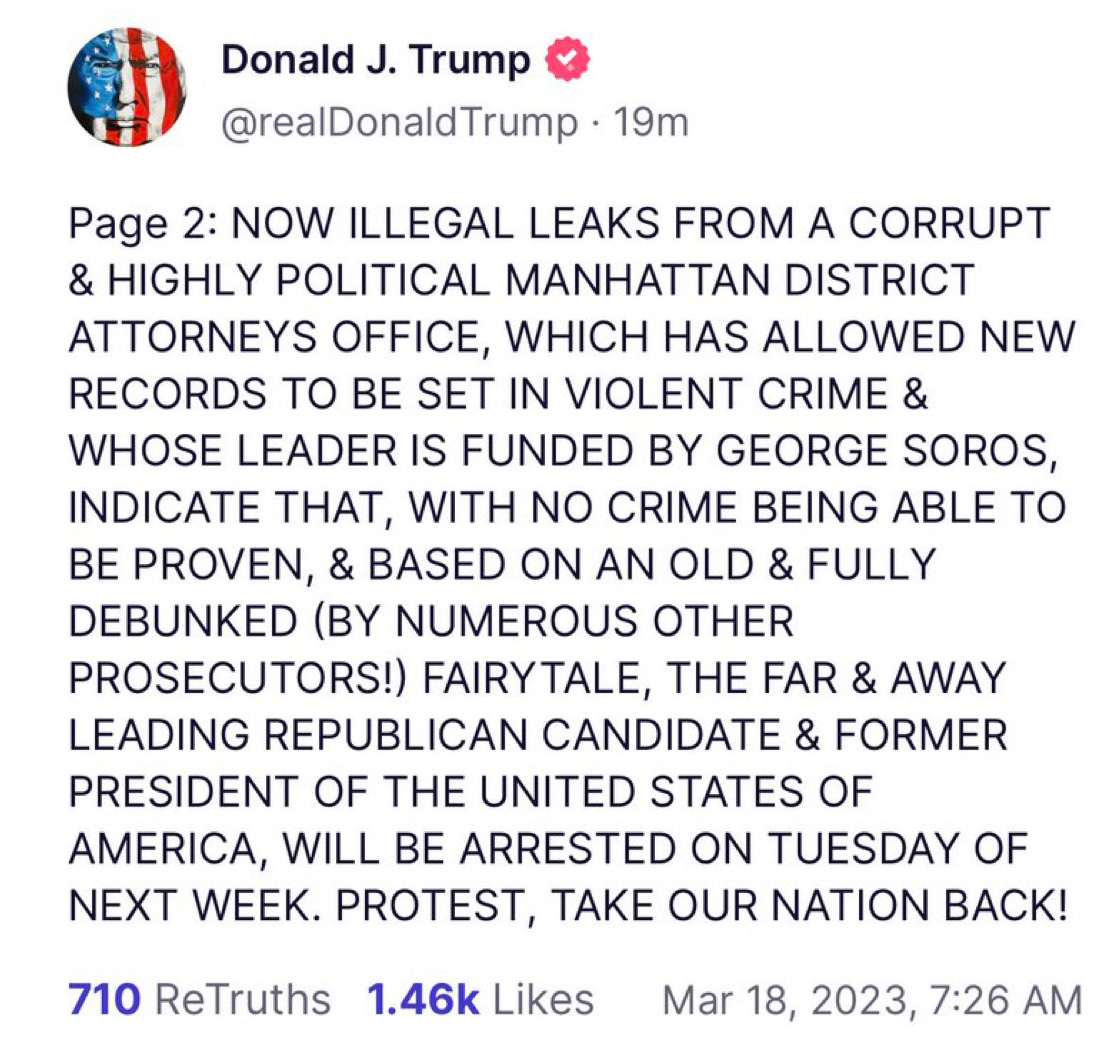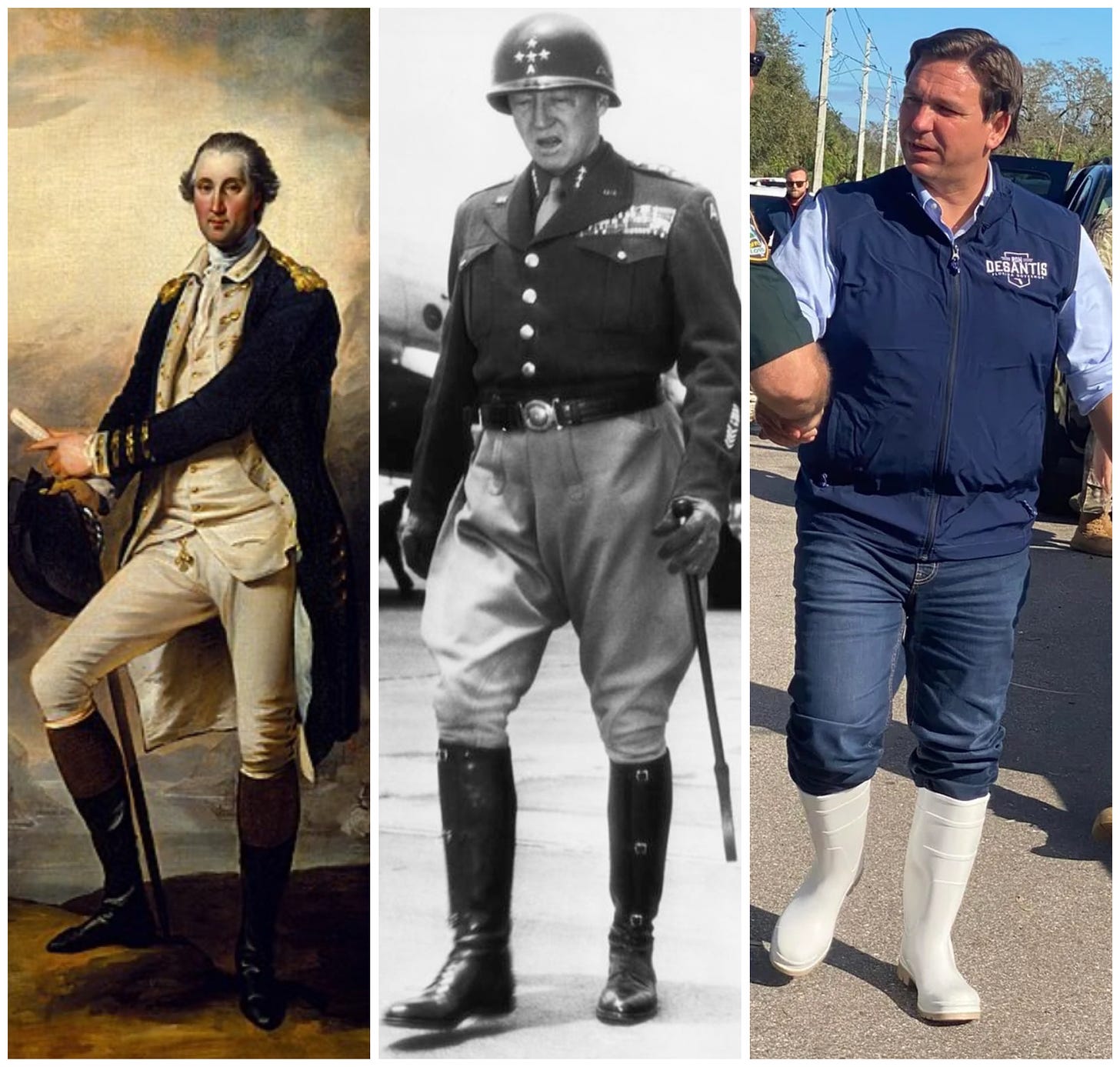Have you ever heard these words, “Give me liberty, or give me death?”
They were alleged to have been spoken by Patrick Henry, a founding father of the United States, in 1775. There are a few things we know to be true about the comments such as they were made on the occasion of the second Virginia Convention at St. John’s Church in Richmond, Virginia, on March 23, 1775. George Washington, Thomas Jefferson and future Chief Justice of the United States John Marshall were all present.
Apparently the speech made an impression. Edward Carrington, who would go on to become a veteran commander during the American Revolution and a confidant of President Washington, listened to the speech outside the church window and requested it become his burial spot. It did. Supposedly, when Henry stopped speaking, the audience sat in stunned silence, overcome with emotion, clarity and resolve.
Times were different then. Most of the founding fathers didn’t see this coming down the pike. There was no reason to believe English would disintegrate as a language where oral communication was concerned. Case in point:
There’s no question they would also have been confused by sartorial evolutions. High boots have always been a thing. The color preferences change over time, but that’s a story for a different day…
Here is what Patrick Henry said that day that is recalled by history as words carved out of hard American granite at the edge of revolution and a new epoch of history:
Let us not, I beseech you, sir, deceive ourselves. Sir, we have done everything that could be done, to avert the storm which is now coming on. We have petitioned; we have remonstrated; we have supplicated; we have prostrated ourselves before the throne, and have implored its interposition to arrest the tyrannical hands of the ministry and Parliament. Our petitions have been slighted; our remonstrances have produced additional violence and insult; our supplications have been disregarded; and we have been spurned, with contempt, from the foot of the throne. In vain, after these things, may we indulge the fond hope of peace and reconciliation. There is no longer any room for hope. If we wish to be free² if we mean to preserve inviolate those inestimable privileges for which we have been so long contending if we mean not basely to abandon the noble struggle in which we have been so long engaged, and which we have pledged ourselves never to abandon until the glorious object of our contest shall be obtained, we must fight! I repeat it, sir, we must fight! An appeal to arms and to the God of Hosts is all that is left us!
They tell us, sir, that we are weak; unable to cope with so formidable an adversary. But when shall we be stronger? Will it be the next week, or the next year? Will it be when we are totally disarmed, and when a British guard shall be stationed in every house? Shall we gather strength by irresolution and inaction? Shall we acquire the means of effectual resistance, by lying supinely on our backs, and hugging the delusive phantom of hope, until our enemies shall have bound us hand and foot? Sir, we are not weak if we make a proper use of those means which the God of nature hath placed in our power. Three millions of people, armed in the holy cause of liberty, and in such a country as that which we possess, are invincible by any force which our enemy can send against us. Besides, sir, we shall not fight our battles alone. There is a just God who presides over the destinies of nations; and who will raise up friends to fight our battles for us. The battle, sir, is not to the strong alone; it is to the vigilant, the active, the brave. Besides, sir, we have no election. If we were base enough to desire it, it is now too late to retire from the contest. There is no retreat but in submission and slavery! Our chains are forged! Their clanking may be heard on the plains of Boston! The war is inevitable and let it come! I repeat it, sir, let it come.
It is in vain, sir, to extenuate the matter. Gentlemen may cry, Peace, Peace but there is no peace. The war is actually begun! The next gale that sweeps from the north will bring to our ears the clash of resounding arms! Our brethren are already in the field! Why stand we here idle? What is it that gentlemen wish? What would they have? Is life so dear, or peace so sweet, as to be purchased at the price of chains and slavery? Forbid it, Almighty God! I know not what course others may take; but as for me, give me liberty or give me death!
The words are momentous, but they were written by Patrick Henry’s biographer William Witt, and published 40 years after the speech was published from the recollections of the surviving old men who heard it. By the time they were published, Henry had been dead for nearly 20 years. Yet, the power of mythology in America is so strong that it made real what we wanted and needed to be real.
It should be no surprise that a nation organized around government “of the people, for the people and by the people” would be particularly susceptible to the formation of such heroic tales. Imagination, virtue and memory are powerful human forces. They can make events appear, disappear, change their meaning, or create them from whole cloth. It is always important to remember that there may be truth in myth, but absolute truth is more complex than heroic memories.
Mythological America has never existed, but the promise held out through the story has always been real. There is no greater act of apathy and malaise than having the energy to judge the past, ignore the present, and disdain responsibility for the future.
Whatever may have been said that day in Richmond, “Give me liberty or give me death” sounded perfect for that time and all time. Most Americans imagine that is their position on the matter, but perhaps that might be another myth. How could it not be? What people who love liberty could possibly turn power over to a man like Trump voluntarily?
We live in an era where reality and mythology are straining against one another. Something will give way.







On the world’s stage, America is a young country but being elderly and much younger than the USA I have some insight into aging. The idea of freedom or death seems positively geriatric to me when looking at where America is today. We now worry more about give me your vote. Much earlier days hundreds of thousands fought and gave their lives to save America and end slavery. Last night, jumping up and down with apparent unbridled enthusiasm was Tim Scott, a very Black Senator from the very Deep South, endorsing a White Supremicist for president. Is this a little like the heart failing, or the legs or the lungs? His Candidate, not only a confirmed racist, who thinks Tim’s kin came from shithole countries, but he is also decorated like a Christmas Tree with indictments and charges and lawsuits and fines, most of which actually glow in the dark. He is rotten down to his last cell. How far is this from Patrick Henry? The difference this dilemma has from aging is that it can be reversed. There is much that can be improved about America but not in a Trump era. That would just slam the door with further decay the only outcome. It doesn’t have to be freedom or death. You don’t YET have to take up arms. You can save your country by paying attention and doing the right thing in the voter’s booth and stop this headlong plunge into darkness. Give me Liberty, please.
“Whatever may have been said that day in Richmond, “Give me liberty or give me death” sounded perfect for that time and all time. Most Americans imagine that is their position on the matter, but perhaps that might be another myth. How could it not be? What people who love liberty could possibly turn power over to a man like Trump voluntarily?”
“Give me liberty or give me death?” Unfortunately, some people’s idea of liberty is to force their own version of it on everyone else. Today, we hear evangelicals tell us that the LGBTQ community and gay marriage is an affront to their way of life.
If you were alive during the Civil Rights movement, then you know the counter-movement evolved because Civil Rights were an affront to the status quo, and certain groups of people’s way of life.
Case in point: Phyllis Schlafly was the darling of the conservative movement against feminism, abortion and gay rights in the 1970’s. She used to debate with feminist icon, Gloria Steinem, claiming that women in the work force were an affront to her, and the tens of millions homemaker’s way of life; claiming homemakers would be frowned upon and lose their high esteemed place in society.
This is the 70’s replaying in real-time. Every time we take one step forward, a counter movement evolves to destroy any progress and take us two steps back (revoking part of the Civil Rights Bill and gerrymandering come to mind).
It started with Nixon’s Southern strategy. It gained momentum with Reagan and eventually W. Bush; legitimizing the religious fanatics who control most of the Republican Party. And it finally metastasized into the malignant tumor we now call Trump and Soeaker of the House, Mike Johnson, and his FreeDum caucus.
Bottom line: history repeats itself; just in different forms...:)